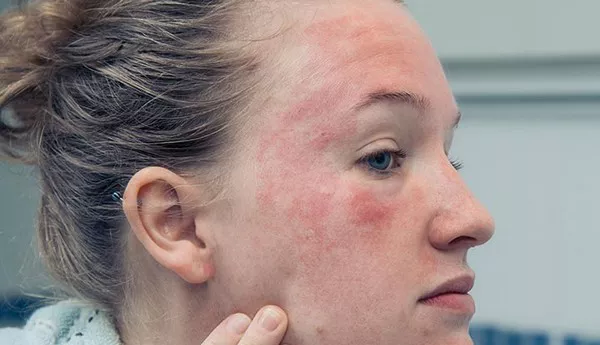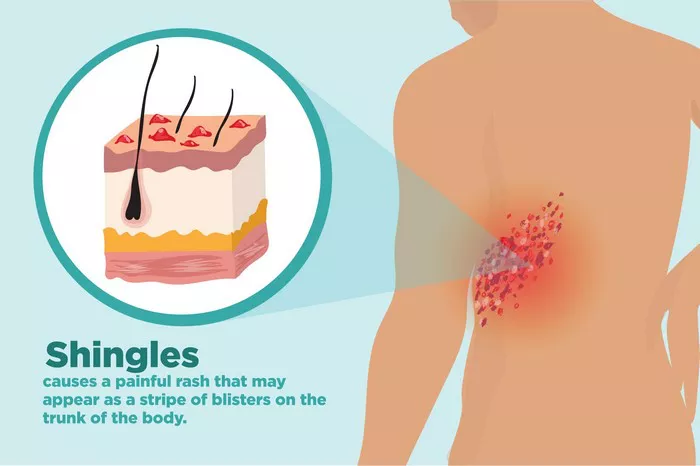Eczema, or atopic dermatitis, is a chronic skin condition characterized by itchy, inflamed patches of skin. While it can affect any part of the body, facial eczema can be particularly distressing due to its visibility and the sensitivity of facial skin. Managing and treating eczema on the face requires a comprehensive approach that includes proper skincare routines, medication, and lifestyle adjustments. This article delves into the most effective strategies for treating eczema patches on the face, providing a detailed guide to help individuals achieve relief and maintain healthy skin.
Understanding Eczema and Its Triggers
Eczema is a complex condition influenced by genetic, environmental, and immunological factors. Identifying and understanding these triggers is crucial for effective management.
Genetic Factors
Genetic predisposition plays a significant role in the development of eczema. Individuals with a family history of eczema, asthma, or hay fever are more likely to develop the condition. Mutations in the filaggrin gene, which is responsible for maintaining the skin’s barrier function, have been linked to a higher risk of eczema.
Environmental Triggers
Various environmental factors can trigger or exacerbate eczema flare-ups. Common triggers include:
- Irritants: Such as soaps, detergents, and fragrances.
- Allergens: Including pollen, pet dander, and dust mites.
- Climate: Extreme temperatures and humidity levels.
- Stress: Emotional stress can worsen eczema symptoms.
- Diet: Certain foods, like dairy and gluten, may trigger flare-ups in some individuals.
Immunological Factors
Eczema is associated with an overactive immune response. This hyperactivity can lead to inflammation and the breakdown of the skin barrier, making it more susceptible to irritants and allergens.
Skincare Routine for Facial Eczema
A consistent and gentle skincare routine is fundamental in managing facial eczema. Here’s a step-by-step guide to an effective regimen:
1. Gentle Cleansing
Cleansing is essential to remove dirt, oil, and potential allergens from the skin. However, harsh cleansers can strip the skin of its natural oils, exacerbating dryness and irritation.
- Use mild, fragrance-free cleansers: Look for products specifically formulated for sensitive or eczema-prone skin.
- Avoid hot water: Use lukewarm water to prevent further drying of the skin.
- Limit cleansing time: Prolonged exposure to water can strip moisture from the skin. Aim for short, gentle cleansing sessions.
2. Moisturizing
Moisturizing is a critical step in managing eczema, as it helps restore and maintain the skin barrier.
- Choose thick, occlusive moisturizers: Products containing ceramides, hyaluronic acid, and glycerin are beneficial. Petroleum jelly and ointments are excellent choices for their occlusive properties.
- Apply immediately after cleansing: Lock in moisture by applying the moisturizer on damp skin.
- Frequent reapplication: Reapply moisturizer several times a day, especially in dry environments.
3. Anti-Inflammatory Treatments
Reducing inflammation is key to controlling eczema flare-ups.
- Topical corticosteroids: These are the mainstay of eczema treatment. Use as directed by a healthcare provider to reduce inflammation and itching. Be cautious with prolonged use on the face due to potential side effects like thinning skin.
- Calcineurin inhibitors: Non-steroidal options such as tacrolimus and pimecrolimus are suitable for delicate areas like the face.
- Crisaborole ointment: An anti-inflammatory treatment that can be used for mild to moderate eczema.
4. Barrier Repair Creams
These creams are formulated to enhance the skin’s barrier function.
- Ingredients to look for: Ceramides, fatty acids, and cholesterol. These help repair and strengthen the skin barrier, reducing sensitivity and flare-ups.
5. Sun Protection
Protecting the skin from the sun is essential, especially when using topical treatments that can increase photosensitivity.
- Use broad-spectrum sunscreen: Choose a product with at least SPF 30, formulated for sensitive skin. Physical sunscreens containing zinc oxide or titanium dioxide are less likely to cause irritation.
- Wear protective clothing: Hats and sunglasses can provide additional protection from UV rays.
Medical Treatments for Facial Eczema
For moderate to severe eczema, or when over-the-counter treatments are insufficient, medical interventions may be necessary.
Prescription Medications
- Topical corticosteroids: As mentioned earlier, these are commonly prescribed but should be used under medical supervision.
- Calcineurin inhibitors: Suitable for sensitive areas like the face, they help reduce inflammation without the risks associated with steroids.
- Systemic treatments: In severe cases, oral medications like corticosteroids, cyclosporine, or methotrexate may be prescribed. These treatments require close monitoring by a healthcare provider.
SEE ALSO: How to Treat Sebaceous Dermatitis
Phototherapy
- Phototherapy, or light therapy, involves exposing the skin to controlled amounts of natural or artificial UV light. It can be an effective treatment for moderate to severe eczema. However, it should be administered by a healthcare professional to minimize risks.
Biologic Therapies
- Biologic drugs, such as dupilumab, target specific components of the immune system involved in eczema. These treatments are typically used for severe cases that do not respond to other therapies.
Lifestyle Adjustments for Eczema Management
In addition to skincare and medical treatments, certain lifestyle adjustments can significantly impact eczema management.
Dietary Modifications
While the link between diet and eczema is still being researched, some individuals find that certain foods can trigger or worsen their symptoms.
- Identify and avoid triggers: Common food triggers include dairy, eggs, nuts, and gluten. An elimination diet, supervised by a healthcare provider, can help identify specific triggers.
- Anti-inflammatory diet: Foods rich in omega-3 fatty acids, such as fish, flaxseeds, and walnuts, can help reduce inflammation. Incorporate plenty of fruits, vegetables, and whole grains into your diet.
Stress Management
Stress is a known trigger for eczema flare-ups. Implementing stress-reducing techniques can help manage symptoms.
- Mindfulness and relaxation techniques: Practices such as yoga, meditation, and deep breathing exercises can help reduce stress levels.
- Regular physical activity: Exercise can improve overall well-being and reduce stress. Choose activities that you enjoy and can incorporate into your routine.
Environmental Modifications
Making changes to your immediate environment can help reduce exposure to potential triggers.
- Humidifiers: Using a humidifier can help maintain moisture in the air, particularly in dry climates or during winter months.
- Hypoallergenic bedding: Choose bedding materials that minimize exposure to dust mites and other allergens.
- Fragrance-free products: Opt for fragrance-free laundry detergents, fabric softeners, and personal care products to reduce irritation.
Natural and Alternative Remedies
Some individuals find relief from eczema symptoms using natural or alternative remedies. While these may not be scientifically proven, they can be worth exploring under the guidance of a healthcare provider.
Aloe Vera
- Aloe vera has anti-inflammatory and soothing properties, making it a popular natural remedy for eczema. Use pure aloe vera gel directly on the affected areas.
Coconut Oil
- Coconut oil is known for its moisturizing and antibacterial properties. Apply virgin coconut oil to eczema patches to help soothe and hydrate the skin.
Oatmeal Baths
- Oatmeal has anti-inflammatory and soothing effects. Adding colloidal oatmeal to bathwater can provide relief from itching and irritation.
Honey
- Honey has antibacterial and healing properties. Applying a thin layer of raw honey to eczema patches can help reduce inflammation and promote healing.
When to See a Healthcare Provider
While many cases of facial eczema can be managed with over-the-counter treatments and lifestyle adjustments, it’s important to seek medical advice when:
- Symptoms worsen or do not improve: Despite following a consistent skincare routine and avoiding known triggers.
- Infection is suspected: Signs of infection include increased redness, warmth, swelling, and the presence of pus.
- Impact on quality of life: Eczema significantly affects daily activities or emotional well-being.
Conclusion
Managing eczema patches on the face requires a multifaceted approach that includes proper skincare, medical treatments, lifestyle adjustments, and potentially natural remedies. By understanding the triggers and implementing effective strategies, individuals with facial eczema can achieve better control over their symptoms and improve their quality of life. Regular consultation with a healthcare provider is essential to tailor the treatment plan to individual needs and ensure the best possible outcomes.
Related Topics:


























